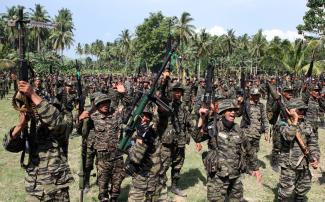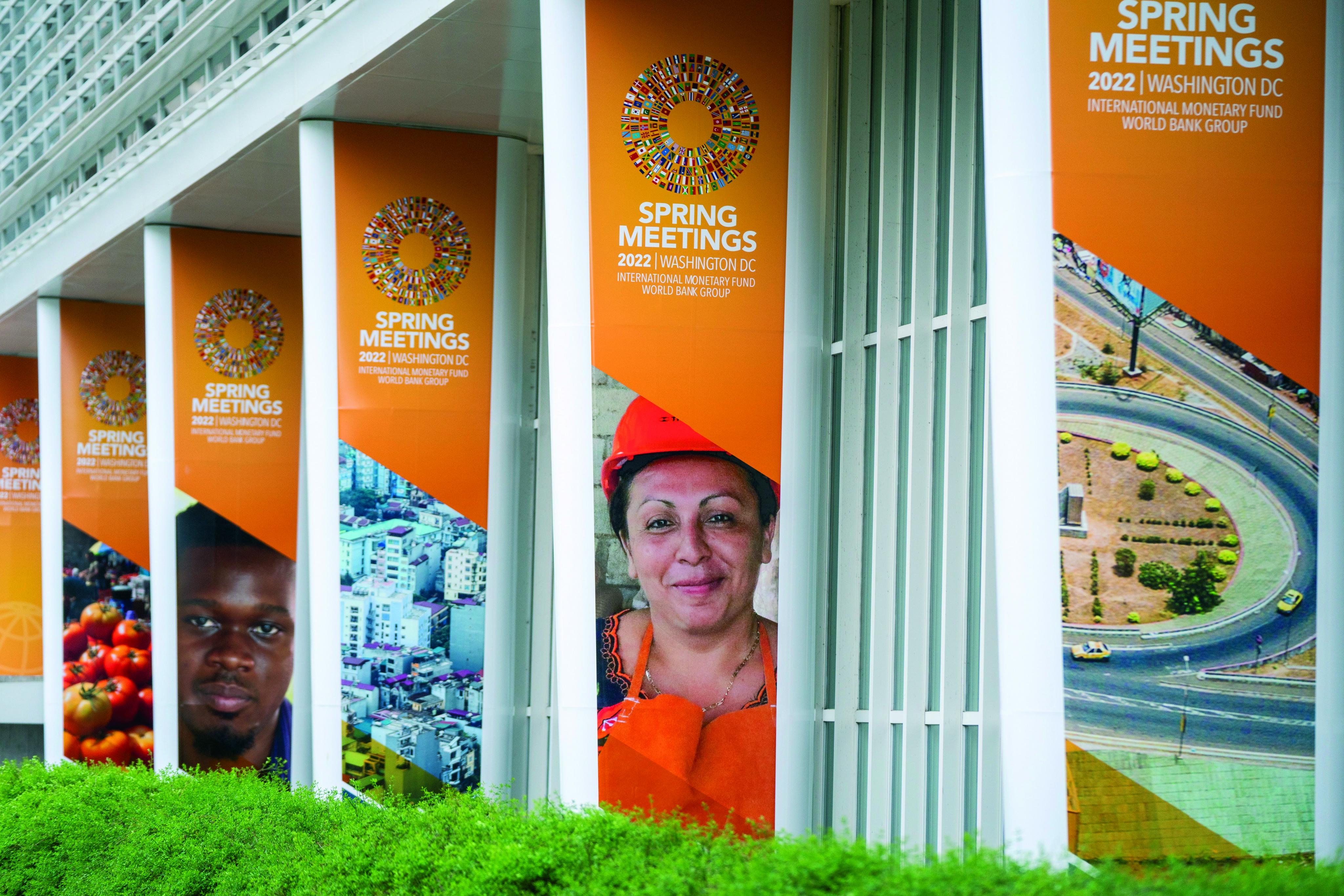The Philippines
Hope for Peace

Signing the framework agreement was an emotional act. Tears of joy flowed in the presidential palace when representatives of the Philippine government and the Moro Islamic Liberation Front (MILF) formally finalised a peace agreement after decades of violent conflict. The framework agreement grants Muslim separatists a new autonomous region called "Bangsamoro."
The agreement enjoys broad support both at home and abroad. Many Filipinos hope that this is the beginning of a new era. They can't help but recall, however, the wave of violence that followed the failure of similar peace negotiations four years ago.
The government of President Benigno "Noynoy" Aquino plans to implement the current framework agreement by 2016, the year his term of office ends. Aquino is a driver of the peace process and hopes that success will earn him a place in history.
Yet much remains to be done before the framework agreement can be implemented. Its initial version did not address key issues regarding the establishment of Bangsamoro. Two annexes have since been signed. They concern transitional provisions and wealth sharing. However, there is still no consensus on power sharing and normalisation. The government wants to conclude those negotiations by the end of the year.
The process was originally supposed to move faster, and delays raised doubts about the negotiating parties' political will. Some observers have spoken of possible failure, but most believe that both sides are genuinely interested in a constructive solution. The lead negotiators appear calm, claiming they are taking all the time they need to achieve true progress, drafting the annexes carefully. The two annexes that have already been agreed upon are indeed reasons for optimism.
This is particularly true of the annex on wealth-sharing and revenue generation. It was signed in mid-July. It stipulates that 75 % of the national taxes raised in Bangsamoro will remain in the region, and 75 % of the revenue generated from the extraction of metallic minerals will also go to the autonomous entity. Income from oil, gas, coal and uranium will be shared equally by Bangsamoro and the Philippines' national government.
Ghadzali Jaafar, the vice chairman of the MILF, is not entirely satisfied with the compromise on energy sources. He would have liked to achieve more. "Bangsamoro is very rich, so it's amazing that the people here are poor," he says. The reason, he claims, is that "the central government controls our natural resources".
Economy of violence
According to Jaafar, it is out of the question that MILF rebels will lay down their weapons anytime soon. Doing so would require additional agreements. Furthermore, there are many other armed militias in addition to the MILF. Acts of terror are still a regular occurrence, perpetrated, especially in western Mindanao, for instance by the Bangsamoro Islamic Freedom Fighters, an offshoot of the MILF. Kidnappings are so common that embassies advise against travelling in the conflict zones.
Since the 1970s, various rebel groups have been active in Mindanao. In practice many of them make their living by forcibly appropriating resources. "Markets of violence" shape the southern Philippines. Coined by the social anthropologist Georg Elwert, this term stands for conflicts that guarantee profits to local warlords and their allies. Markets of violence arise and become entrenched where states are unable to enforce their monopoly on the use of force.
Thus far, the fighting in Mindanao has cost the lives of over 150,000 people. Hundreds of thousands have been internally displaced. Over half a million people fled their homes because of the violence that followed the failed peace talks in 2008.
The conflict has a long and complicated history. Initially, the Moro National Liberation Front (MNLF) dominated the Muslim resistance. The MNLF took up arms when the Philippines were still ruled by the dictator Ferdinand Marcos in the 1970s. In 1996, it concluded a peace agreement with the government of Fidel Ramos, the elected president at the time.
Negotiations between the government and the MILF began the next year. They saw progress as well as setbacks. In 2000, Joseph Estrada, the president at the time who would later be ousted by a broad-based popular movement, went so far as to declare an "all-out war" against the MILF.
If the new peace agreement succeeds in laying the foundation for growth and prosperity in the southern Philippines, the region's potential for violence will be greatly reduced. However, the foundations for peace will remain shaky unless all actors and groups become involved in the process. Moreover, constitutional principles must be enforced.
Fundamental change
Implementing the framework agreement and its annexes is likely to prove a huge challenge. Far-reaching economic, political, legal and social reforms must take root if warlords, private armies, militias, rebel groups and criminal gangs are to be brought under control in the medium and long-term. The administrators of the future autonomous region will certainly not have an easy job.
Even failure is possible, as history teaches us. After the peace agreement with the MNLF in 1996, the Autonomous Region in Muslim Mindanao (ARMM) was established. Today, that project is considered to have failed because of chronic violence, corruption and cronyism.
The new framework agreement spells out far-reaching political reforms. Bangsamoro will be given a status corresponding to that of a state in a federal system. This approach is innovative. Up to now, the Philippines have been centrally governed. The new autonomous region is supposed to get its own legislative assembly, state government and meaningful regional political parties.
The framework agreement also mandates the creation of a Transition Commission that will draft a constitution for Bangsamoro. This constitution will need the approval of the Philippine Congress and must be ratified by people of Bangsamoro in a referendum. President Aquino has already appointed this Commission.
Aquino's policy choices are courageous because establishing Bangsamoro will set a precedent. In the mountains of northern Luzon people are already demanding a similar autonomous region.
Administration and governance tend to be weak in the Philippines. Corruption is widespread and systemic. If Bangsamoro succeeds in strengthening democracy and guaranteeing the rule of law, it could become a model for the entire country. Many political observers hope that this will be the case. If so, it could prove a turning point for the entire nation.
Patience is required, and setbacks are likely. Nevertheless, the chances for lasting peace are better today than they have been for a long time. For the sake of the people in Mindanao and throughout the Philippines, one can only hope that Bangsamoro will be a great success.
The views expressed in this article are solely those of the authors.
Wolfgang Moellers is the GIZ's deputy regional director in the Philippines.
wolfgang.moellers@giz.de
Matthias Österle coordinates the Civil Peace Service for GIZ in the Philippines. matthias.oesterle@giz.de










